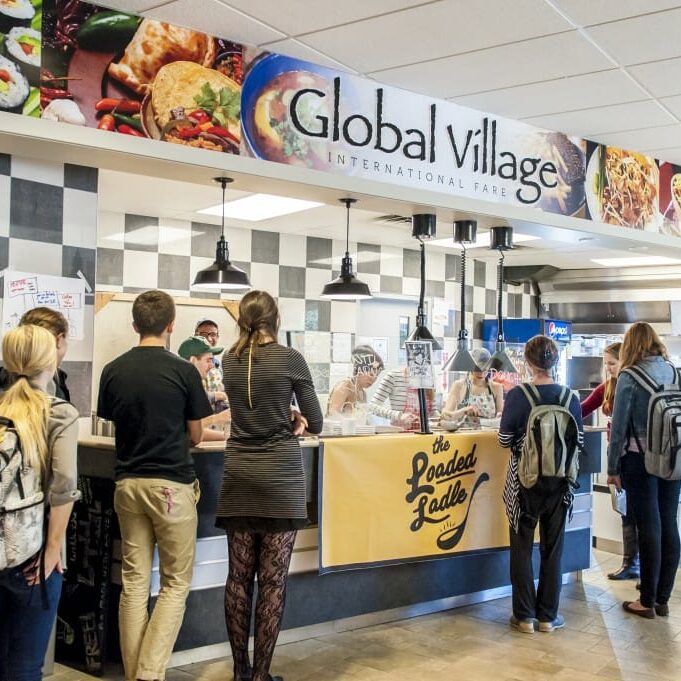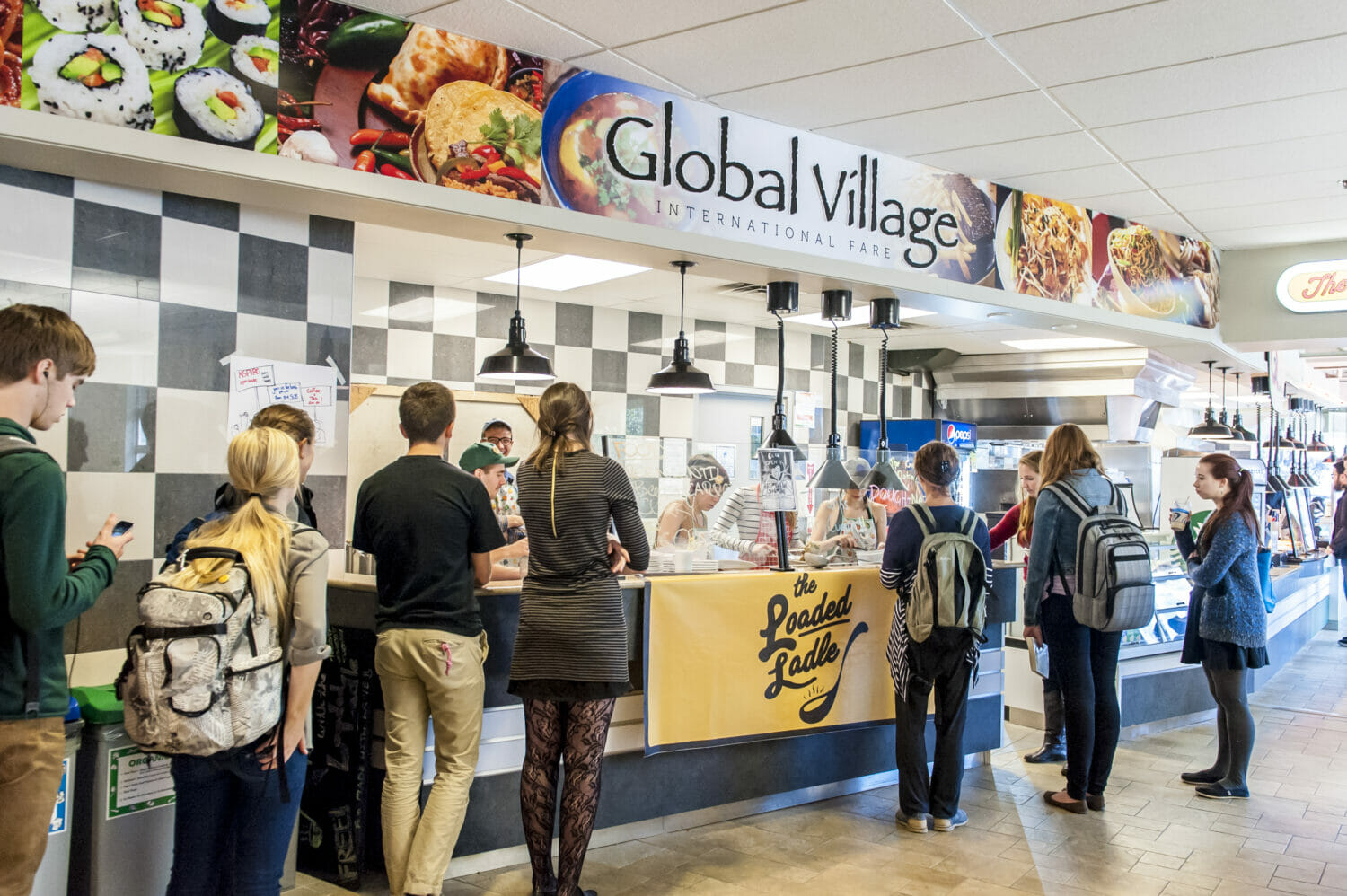
The sticky-note plastered blueprint on the wall inside the Student Union Building (SUB) is covered with scrawled messages like “more room for the Ladle,” and “Loaded Ladle should be on the main floor.” Students have been speaking out since the plan to move the Loaded Ladle to the basement during renovations was announced. If plans can’t be changed, the Ladle will lose its prime location on the main floor, and some practical assets like adequate seating and, well, a neighbouring kitchen.
“The proposed space doesn’t have an attached kitchen,” says Drew Childerhose, a coordinator with the Loaded Ladle. “There aren’t any tables down there and there’s not the same amount of foot traffic. We wouldn’t have direct access to an oven, a stovetop, rice cookers, steamers.”
Childerhose makes his position clear: “The basement is just not a viable option for the Ladle. I don’t think we’d cook anymore if we were put down there.”
Dal student groups and groups from other campuses have been writing letters to the Dal Student Union (DSU), arguing that the basement is no place for an important campus presence. “The People’s Potato from Concordia sent in a letter,” says fellow coordinator Joan Moses. “And we have one coming in right now from the University of Maine,” adds Childerhose. “We’ve heard from the DSU that an overwhelming amount of the feedback they’ve received has been regarding the Loaded Ladle. At this point we have been promised a first floor kitchen.”
But Moses adds that “we haven’t seen it in writing, we haven’t seen it in the blueprint. We kind of feel like the plans aren’t confirmed.”
Every Tuesday, Wednesday and Thursday, the Loaded Ladle serves lunch to hundreds of people. The food is vegan so it can be eaten by as many as possible. It’s also free.
“A meal from a different place in this building will cost you $7 or $8,” says Moses. “Especially in a time where the DSU has been arguing for lower tuition or tuition freezes, this is something real that cuts costs,” adds Childerhose.
Moses and Childerhose want their own space equipped with basic equipment. “We don’t have a full staff. We’re mostly run by volunteers,” says Moses. “We’d be open to sharing space with other student groups but I think the reality is we need to be able to create a welcoming space for volunteers. If we had our own space, serving five days a week would become possible.”
“We’re also spread out over three floors to cook,” says Childerhose. “We wash our dishes on the second floor, we do most of our cooking on the first floor and where we cook our rice and where the ovens are is located in the basement. We serve between 220 and 260 people every day, but if we didn’t have those hurdles to overcome it’s not incomprehensible to think we could serve 400 people.”
It’s not just the Ladle losing space during renovations that worries Moses and Childerhose. “I don’t think one floor worth $5 million is really the best use of money,” says Childerhose. “I don’t think the DSU is thinking in a progressive way. One would assume that if you were going to spend $10 to 13 million on renovations, you’d be thinking about how the DSU could grow, and where it will be in 10, 15 years rather than creating spaces that aren’t even suitable now. ”
Moses adds that these plans could turn out worse for smaller groups than it will for the Ladle. “The Ladle is lucky because we’re visible right now on the main floor and have paid staff. Not every society has that. The DSU never consulted a lot of the societies in a meaningful way.”
In the future, Moses and Childerhose hope to see the Ladle become more of a presence on campus. “Where we see it growing is in producing our own literature. We want people to think about the food they’re eating and why,” says Moses.
Moses hopes that the DSU will help, rather than hinder their efforts. “The DSU has a responsibility to give student groups space. They’re why a lot of students are even in this building.” Childerhose adds that the long life of student groups should convince the DSU not to underestimate their importance. “These are all societies that have passed many referendums. It’s a track-record that speaks louder than winning one vote.”







